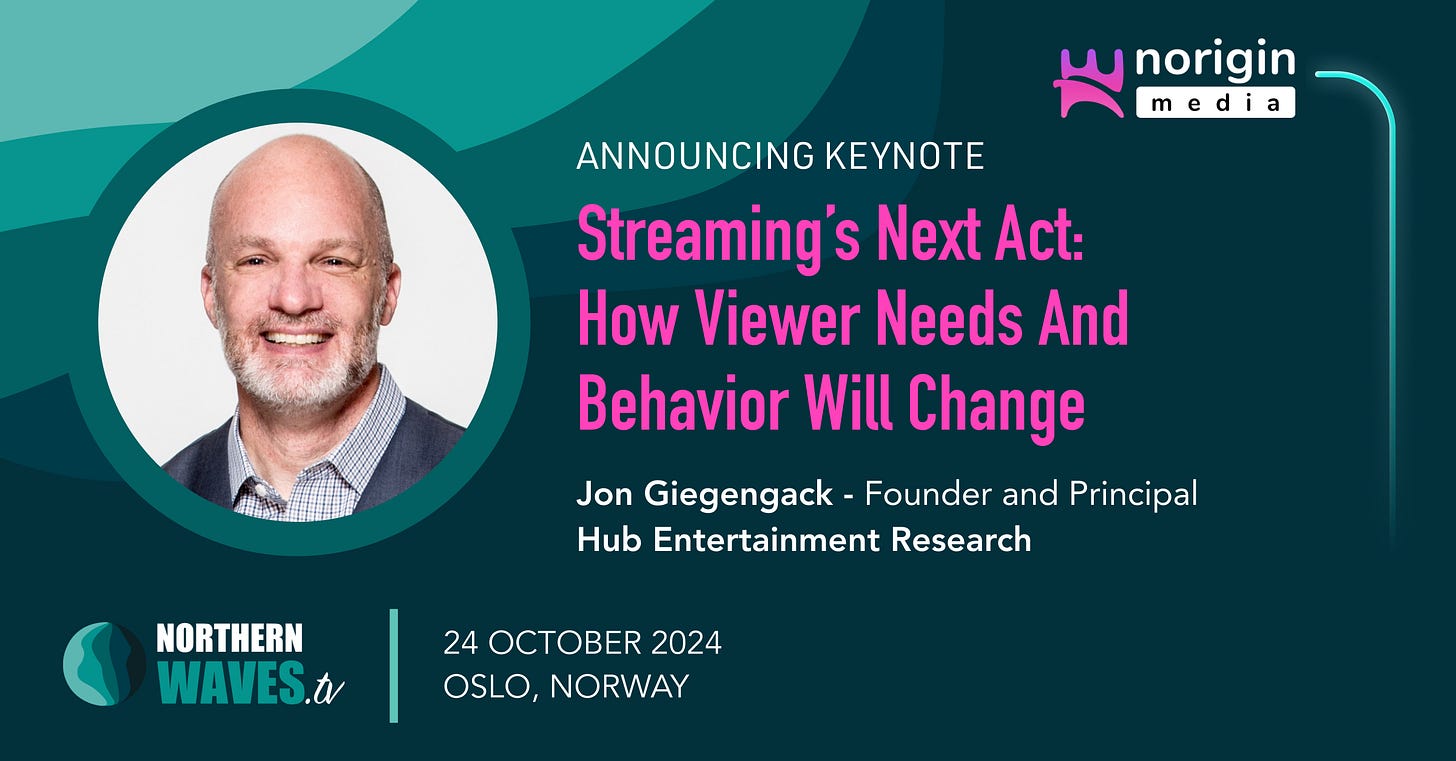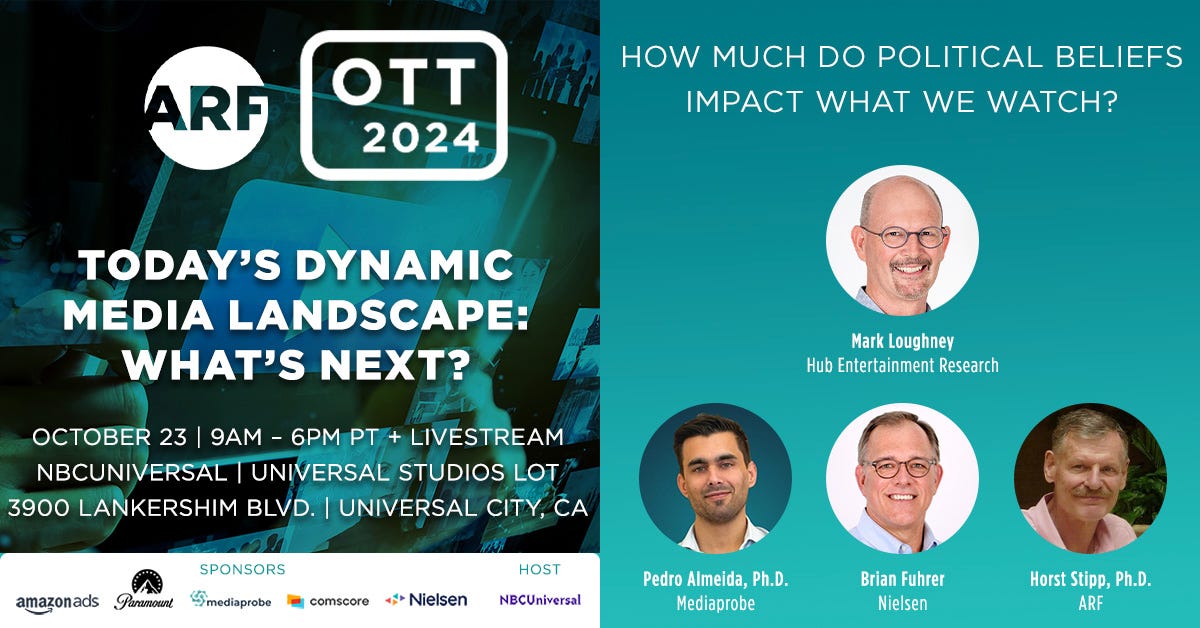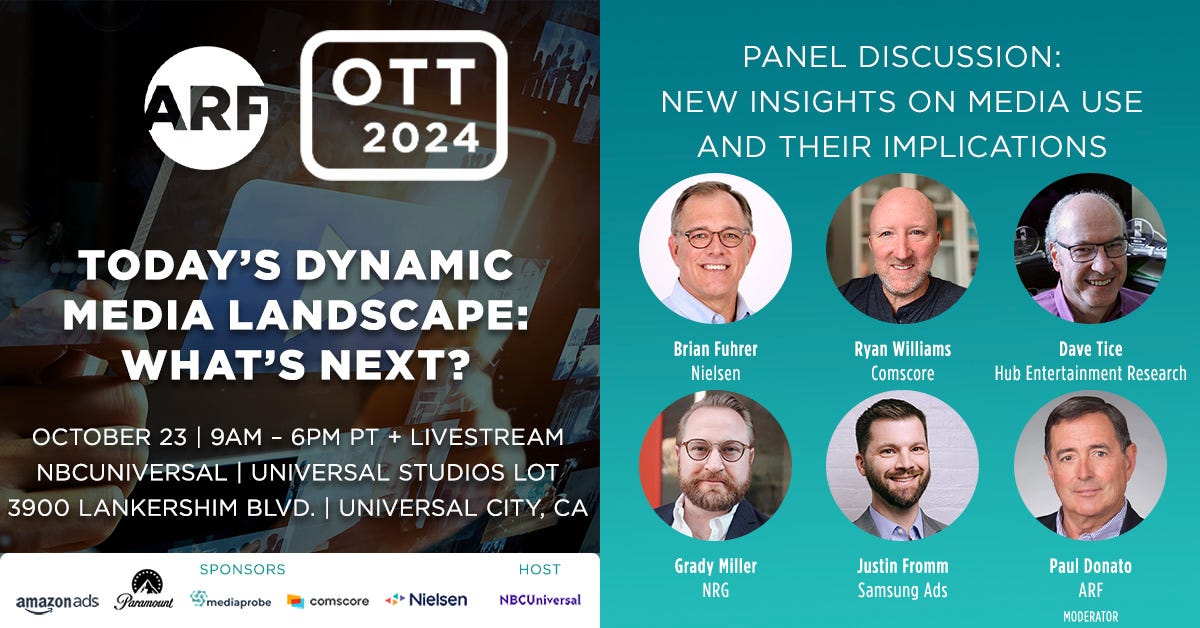Beyond the Prompt: How AI Is Shaping the Future of Streaming Apps
From personalized content and thumbnails to code that writes itself, how AI is reshaping the way we create and consume streaming content on CTVs and beyond.
Welcome to Hub Intel. We’re here to provide data, not drama. Our goal is to help you understand the trends in the entertainment industry and what they mean to your business.
Beyond the Prompt: How AI Is Shaping the Future of Streaming Apps
Have you ever written an AI prompt where the generated result was better than you imagined?
A prompt gathers data and presents results as requested, but not complete with any form of finishing touches. But in the future, will a prompt be enough to build complete and production-ready websites and TV streaming apps? If we embrace AI technologies responsibly instead of fearing them, I am certain the answer is yes.
AI results can often feel robotic, requiring more detailed prompts and human refinement to improve the output from the various tools that create content, information, or precise engineering code. As humans interact with these systems and provide more feedback, the AI learns and improves over time, eventually making its output more accurate and polished. Like all forms of machine learning, the more we use it, the closer we get to achieving "pixel-perfect" results.
The use of machine learning and artificial intelligence technologies for consumer-facing services like Netflix is old news. As the CEO of Norigin Media, I’ve been following updates on how metadata and thumbnails have progressively been adapted based on usage patterns for nearly a decade. Thumbnails, for example, are created using vast amounts of data based on users' browsing and playback behaviors. A streaming app can then use this data to recommend a particular show based on an individual's viewing patterns. For a while now, these platforms have been capable of displaying different versions of a thumbnail—be it comedy or action—for the same show, tailored to a person’s preference for certain genres. This goes deeper, when we see how even the color patterns of thumbnails are adapted to get the attention of a very “browsy” consumer, to aid the search and discovery of content.
The advancement of generative AI will take things leaps and bounds forward, allowing apps to create recommendations instantly, to the point where consumers might feel like the app can read their mind. And this experience will only get better over time. As consumers engage with AI-generated suggestions or metadata, the AI’s ability to predict preferences will improve – in a mind-blowing way.
CTV apps can’t actually build themselves, can they?

No, they can’t. At Norigin Media, we have truly great frontend engineers who are always upskilling in how they select frameworks, libraries, and perform coding while building apps across CTVs like AndroidTV, Roku, or the more fragmented Samsung Tizen, LG webOS, and other smart TVs.
Since AI trains itself, the humans who use it need to continuously update and train themselves as well to ensure they’re using the right AI tools. We’ve already seen several companies releasing AI tools for coding, and time will tell how these technologies develop. For now, as with all tech releases, I follow the big five: Microsoft, Google, Apple, Amazon, and Meta. Or should I say big six, with OpenAI?
Technology has always evolved rapidly, and AI tools will accelerate this progress even further. It's crucial for media companies to sharpen skills in all areas—engineering, software development, quality assurance, and architecture—so that humans and AI-powered technologies together can create vast amounts of IPR. If we fully embrace this AI revolution, using and planning tools from major companies wisely, it could become the most significant technology revolution we've ever experienced.
Microsoft, paired with OpenAI's GPT language model, is currently offering the most assistance to the software engineering community when it comes to coding creation, quality assurance, and the automated testing of code or applications. There are many tools available, of course, with each engineer having their own personal favorites. For example, GitHub Copilot is leading in code creation, documentation, and the review and testing of code. The savviest engineers will leverage these generative technologies to be more effective in creating apps across devices like smart TVs and CTVs, where app stores are exploding. It’s crucial for engineers to learn how to use these AI tools, as they are becoming more relevant and important every day.
When embraced responsibly, AI has the potential to significantly enhance the way we build and use technology. By contributing to a strong technology foundation, we can pave the way for AI tools that are affordable, widespread, and as common as the internet. The more AI and machine learning tools are used across a wide range of data by many people, the better they become. Media companies should encourage professionals across all fields—not just tech—to use both simple and complex AI tools to assist with their work. This responsible use of AI will catapult streaming apps and other platforms to new levels of consumer satisfaction. As these tools improve, they will become more stable, trustworthy, and easier to use, eventually becoming as essential as the internet itself.
Stay tuned for more about how we use AI tools in engineering with our periodical blog “Norigin Diaries.“
Ajey Anand is CEO of the CTV and Multi-Screen TV Apps company, Norigin Media. He has served as Chief Executive Officer since 2015 and has worked with broadcasters and operators for nearly two decades across Europe and America. Through developing streaming services, he has become passionate about technologies for Video Streaming and coding TV Apps. He has immense passion for UI/UX and the aesthetics of design in technology. He has previously worked with NewsCorp in Asia.
Norigin Media is a Scandinavian company offering streaming TV tech solutions for Broadcasters, Pay TV Operators and OTT Service providers. The company specializes in multiscreen TV App development and reliable linear OTT transcoding, with a goal to improve user experiences across all streaming services, on any device.Customers have included Deutsche Telekom, Orange Group, Telenor, FOX, BBC, MTV, Eurosport, Bonnier Broadcasting and others.
Going to These Upcoming Conferences? Come Say Hi 👋🏼
NORTHERN WAVES TV CONFERENCE: October 24, 2024 (Oslo, Norway 🇳🇴)
Hub’s Jon Giegengack is thrilled to be a part of Northern Waves TV, proudly presented by Norigin Media. As a keynote speaker, Jon will present the most important trends in TV over the past year from the surge of FAST channels and bundling to why sports rights are so expensive and the importance of a good user experience.
ARF OTT 2024: October 23, 2024 (Los Angeles + Livestream)
Hub's Mark Loughney will present study findings where we will uncover the degree to which political attitudes and partisanship do (or don’t) influence what we watch for entertainment.
Hub's David Tice will be discussing new insights on media use and their implications with a group of media research all-stars.
Want More Hub Intel?
Hub Intel is a reader-supported publication. Become a paid subscriber to get access to exclusive Hub white papers and deep dives on key topics as well as admission to Hub’s webinars.
Hub Entertainment Research, which celebrated its 10th anniversary in 2023, tracks how technology is changing the way people find, choose, and consume entertainment content: from TV and movies to gaming, music, podcasts, and social video. Hub’s studies have covered the most important trends in providers, devices, and technologies since 2013. We work with the largest TV networks, pay TV operators, streaming providers, technology companies, and studios to assess the present and forecast the future.
Learn More: Visit our website
Follow Us: LinkedIn
Get In Touch: Email us at hubintel@substack.com







